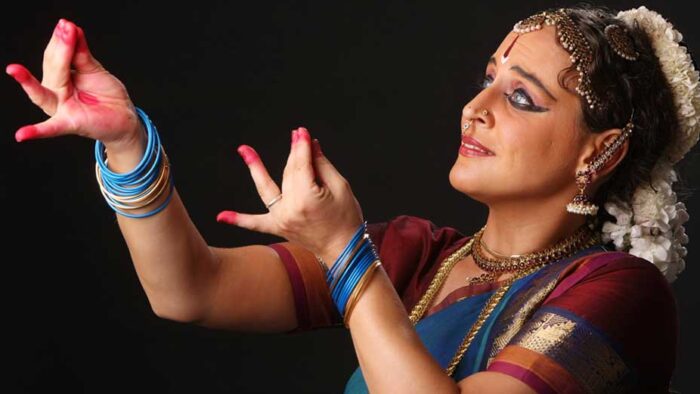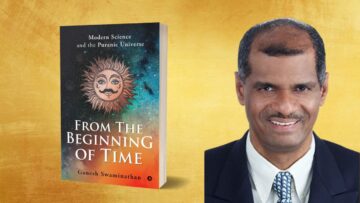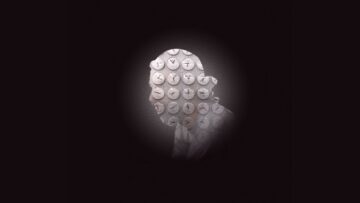Centre for Soft Power Studies is dedicated to serving non-Indian seekers of Indian Knowledge Systems and traditions.
Our goal is to cultivate a global community of conscious citizens inspired to incorporate IKS into their daily lives.
We offer programs, including courses, talks, conferences, seminars, and festivals.
Director Smt Vijayalakshmi Vijayakumar has been at the heart of several art programmes for several decades including the iconic Bengalur Temple Festival – Gudiya Sambrahama. Under her stewardship, we engage with practitioners, academics, policy makers and other stakeholders to study, promote and disseminate knowledge, with an emphasis on an India-centric view of soft power. The Center, apart from carrying out research, also proposes to map the various elements of India’s soft power such as Ayurveda, cinema, cuisine, design, handicrafts, sports, literature, music, performing arts, spirituality, tourism, visual arts and yoga.
CSPS hosted three conferences on Soft Power, the first in collaboration with India Foundation and later Namaste 2020 and 2021. Namaste 2020 was an attempt to move beyond the study of Indian Soft Power merely in terms of what India offers to the world, to a trans disciplinary exposition entailing a fusion of academic and nonacademic study of Indian Knowledge Systems, different cultural theories and practices, and how this vast wealth of knowledge operates in the globe today through different disciplines and professions.
The month long festival held between August 15 and September 6, included seminars, workshops and labs on India’s diverse traditions from mathematics to sciences, from the Vedas to Shastras, music and meditation to dance and dramaturgy, history to living art forms, cinema to culinary heritage, and technology to textiles.
The potency of Indian soft power in terms of diplomacy and value was highlighted by eminent Indian diplomats, heads of institutions and international speakers and Indologists.
The festival featured over 30 sessions, 147 speakers (35 non-Indians) and 11 diplomats,
Arunima Gupta’s article, “Celebrating Indian Soft Power,” published in USC Public Diplomacy captures the essence of the discussions at the event.
Srishti Sambhrama: Celebrating the Earth Mother
Shrishti Sambhrama was held to discover, understand and celebrate our wildlife. The conversations spanned across people’s identities, culture, community, the earth and the other living beings that inhabit it. Artists, conservationists, grassroots workers, photographers all came together to show how Indians are committed to mother nature.
We also learnt about the similarities between Vedic and Mayan Customs, impact of wildlife filmmaking in creating awareness and making individuals more connected with nature through wildlife art. Developing upon the latter, we organized three virtual exhibitions on wildlife art, wildlife photography and the reverence of the wild in Indian civilization.
Ayushman 2020: The Global Significance of Ayurveda
The need to integrate Ayurvedic practices in our everyday lives, during these challenging times that has shown up the inadequacy of modern health care prompted us to dive deep into Ayurveda with Ayushman 2020.
The festival ran for 6 weekends with 11 sessions which saw the participation of Ayurvedic practitioners, scholars and beneficiaries from around the world. Discussions spanned from the history of Ayurveda, its global presence and contemporary relevance to literature, philosophy and its adaptation by the younger generations. We had over 60 speakers from 15 countries across the globe who shared their valuable insights on these topics.
To add to this enriching experience, Rukmini Vijayakumar brilliantly conveyed the essence of balancing the doshas and its bearings on one’s state of mind through her dance film. Shot amidst fire and underwater, Nadi: The Balance of Elements is a work of creative excellence.
Read more on the sessions held at Ayushman 2020 – Anubhava, Pramana, Vartamana, Parivartana, Shreyasi and Nadi: Balancing the Elements.
Research and Outreach
In 2023, India’s Soft Power witnessed significant enrichment and influence across various domains. Aparna Sridhar’s paper Broadening AI Ethics Narratives: An Indic Art View, co authored with Dr Ramya Srinivasan and Dr Ajay Diwakaran, was selected for the FAact Conference held in Chicago in June 2023.
In this paper, we investigate a complementary direction–that of uncovering the unique socio-cultural perspectives embedded in human-made art, which in turn, can be valuable in expanding the horizon of AI ethics. Through semi-structured interviews across 16 artists, art scholars, and researchers of diverse Indian art forms like music, sculpture, painting, floor drawings, dance, etc., we explore how non-Western ethical abstractions, methods of learning, and participatory practices observed in Indian arts, one of the most ancient yet perpetual and influential art traditions, can shed light on aspects related to ethical AI systems.
Arunima Gupta and Aparna Sridhar wrote about India’s hosting of the Cricket World Cup and its implications for Soft Power for the University of Southern California’s Center for Public Diplomacy (CPD) Blog, which aims to dialogue among scholars and practitioners from around the world in the public diplomacy sphere.
Performing Arts: Initiatives like Gungur in Buenos Aires and Anahata project in India showcased the growing popularity of Indian classical dance and literature globally. Dr. Janardan Ghosh’s research on urban theatre dynamics added depth to the field.
Culinary: Gastrodiplomacy intertwined Indian and Indonesian cuisines at The Apurva Kempinski, while Nila Indian Rendezvous explored Indian-Norwegian recipe fusion. Rupee, an Indian-flavored brew, gained recognition, and Indian mangoes made their mark worldwide.
Heritage: Individuals like Sonia Ortiz, Pepita Seth, and Shri Sunil Kumar found cultural resonance and significance in India, reflecting the country’s rich heritage.
Art: Tamaala Art Gallery supported traditional artisans, while Dutch murals in India served as diplomatic symbols. Strokearts Studio Pte Ltd promoted Indian visual art education.
Music: Vidwan Rakesh Chaurasia highlighted the adaptability of the Bansuri flute, and Dr. Sushruti Santhanam emphasized the intertwining of artistic knowledge and aesthetics.
Ayurveda: Sonia Molina Jiménez and Michal Rollia found healing and lifestyle solutions in Ayurveda, showcasing its global reach and impact.
Linguistics: Elizabeth Keyton’s Malayalam learning directory reflected international interest in Indian languages, contributing to cultural exchange.
Spirituality: Dirk Gysels and Martin Gray shared their experiences with Indian spirituality, exploring its depth and significance.






